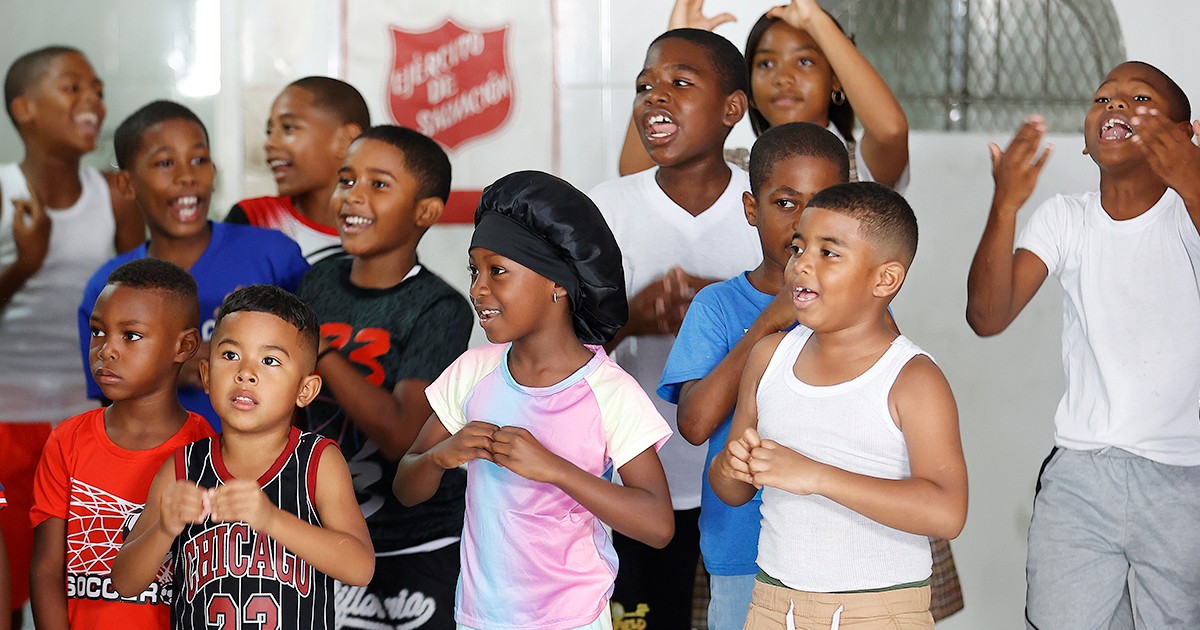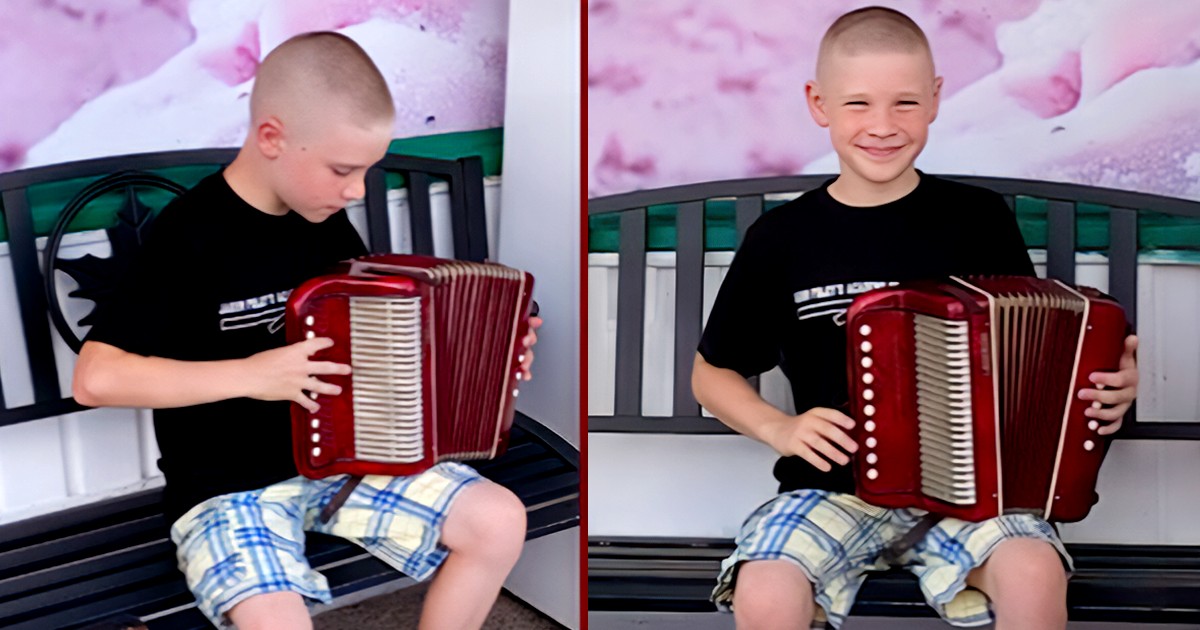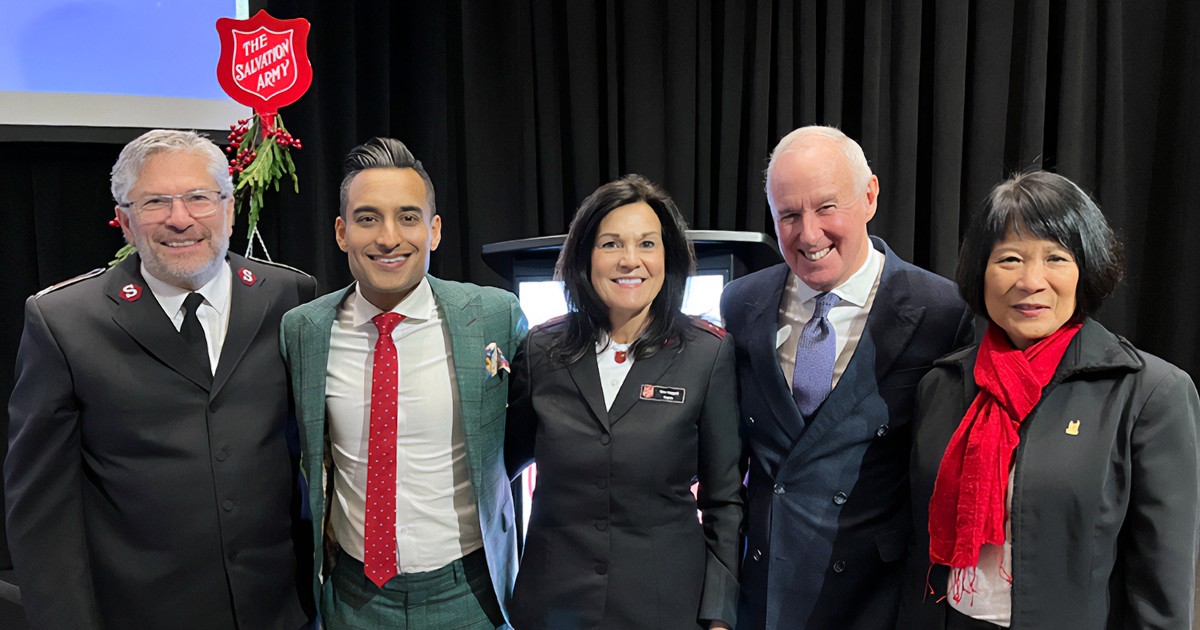 A few months ago, a girl named Patty impacted my life in an incredible way. Our corps, Vancouver 614, has been involved in her community and school for over two years now, and she was one of the charter members of our after-school activities. The area she lives in is extremely poor, riddled with crime and a host of other social problems. My corps team has spent time with this little girl and her family in cell groups, at her home, at soccer games, in her school and at the local Dairy Queen. Last week she reached up, grabbed my hand, and said, “Can I join The Salvation Army?” Patty wants to become our first ever junior soldier.
A few months ago, a girl named Patty impacted my life in an incredible way. Our corps, Vancouver 614, has been involved in her community and school for over two years now, and she was one of the charter members of our after-school activities. The area she lives in is extremely poor, riddled with crime and a host of other social problems. My corps team has spent time with this little girl and her family in cell groups, at her home, at soccer games, in her school and at the local Dairy Queen. Last week she reached up, grabbed my hand, and said, “Can I join The Salvation Army?” Patty wants to become our first ever junior soldier.
I live for those moments. Patty has become a Christian, and she has also seen something in the way we have committed ourselves to her life and community that caused her to want to join. Our goal in Patty's neighbourhood is to raise up an entire generation of children like Patty, children who lack the options we take for granted but who also carry within them the potential to change their communities and their world for Christ.
But if this is truly our goal, and not just empty talk, then we need to constantly keep before us the following questions: How effective are we at impacting the kids in this community? Are we recognizing and responding to the needs of children and youth in our community and the world? Are we empowering them to reach their peers, to dream big, to take the lead, to believe in and act upon the promises of God? Or are we just doing what we've always done because it's safe and it used to work well?
These are vital questions for all of us to answer if we are to have any future at all in discipling youth and children in The Salvation Army. Why do we do what we do? What is the point of our programming? Are we genuinely interested in looking beyond the walls of our buildings and having a godly influence on the communities and youth outside our doors?
Before we even get to these questions, though, we need to clear a big and often contentious hurdle. Who are we called to as The Salvation Army? A group I co-facilitated at the Innovare youth forum at Jackson's Point came up with the following answer to that question in the context of youth ministry: “The Salvation Army is fundamentally called to the broken, poor, oppressed and neglected children and youth of our communities and our world.”
It's incredibly powerful to see youth recognizing and responding to injustice in their own backyards and across the globe
This was a hotly discussed and debated statement at the gathering (see sidebar), but it did give us a focus and a way forward for our group. If that is our call and our mission to children in our communities and our world, how can we best fulfil it?
The answer we came up with was incarnational ministry. We cannot hope to know our communities, let alone impact the youth in them, if we are not incarnated in them. The word incarnate literally means “to put on flesh.” Jesus is the example here, taking on human flesh to come and dwell among us. We, too, must be incarnationally involved with the youth in our communities. This doesn't just mean running programs in our corps and waiting for children and youth to show up. It may involve spending less time in church-based programs and more time in people's homes, on basketball courts, in after-school activities and drop-in centres—meeting them where they are. We simply need to be present in their lives.
Being present will help us understand what the face of poverty and injustice looks like in our communities. We can then work with young people to find ways to effectively and compassionately address those issues. It's incredibly powerful to see youth recognizing and responding to injustice in their own backyards and across the globe.
The problem is, it is difficult to know your community if you only spend time there on Sunday mornings and Wednesday evenings, and most of that time is spent inside the corps building. So do you need to move into the area you want to impact? Maybe. Probably. At the very least you need to be committed to the community, prepared to give a lot of time to the children and youth that are there. If we are not prepared to “become flesh” in these communities, we will be replaced by other groups that are prepared to do so. There are many people looking to influence the lives of youth in our communities, not all of them in positive ways. If we want to have any kind of impact at all, we have to be there, fully committed, laying our whole selves down.
Is this asking too much? Are the decisions already made and sealed on where we will live and on whom we will focus our ministries? It is important to understand that these are not neutral decisions. We don't just “find” ourselves and our corps in certain communities and situations. We choose to be there, and so we have to examine what we are basing our choices on. To be incarnational is not always to be comfortable. In fact, it almost always means the opposite.
Incarnational living and concern for the poor and broken youth in our neighbourhoods and in our world are key if we want to impact our communities for Christ. Neither are easy, nor do they allow for us to focus first on ourselves. But, as Patty proved to me when she grabbed my hand and asked to join, there is great joy in living your life for Christ and for his children. I wouldn't give that up for anything.
Are We Called to Serve the Poor?
Suggesting that The Salvation Army is fundamentally called to poor children can cause frustration and criticism. Is that limiting the mission of Jesus? Is there room in that definition for those ministering to affluent youth and families?
 Many corps are now situated outside of downtown areas, and are working with youth who wouldn't be considered “poor,” even by Western standards. Delegates at Innovare noted that the problems of neglect, oppression and brokenness occur everywhere and that affluent children need Jesus as much as those who are poor.
Many corps are now situated outside of downtown areas, and are working with youth who wouldn't be considered “poor,” even by Western standards. Delegates at Innovare noted that the problems of neglect, oppression and brokenness occur everywhere and that affluent children need Jesus as much as those who are poor.
All of this is true. But it is also true that the poor and powerless—widows and orphans in particular—get mentioned a fair amount in Scripture. Poverty is the second most prominent theme in the Old Testament (after idolatry, which is closely related), and in the New Testament, one in every 16 verses is about wealth and poverty. Along with the Kingdom of God, it was Jesus' favourite discussion topic. Yes, Jesus talked about the “poor in spirit,” and there is a spiritual poverty in our communities and world that needs to be addressed. But he also specifically and frequently spoke about the need for his followers to minister to those who are physically oppressed and materially poor.
On top of this is the foundational call of The Salvation Army to fight oppression and injustice in our world. That is an undeniable part of our identity, one of the primary reasons for our existence. It is one of the prophetic announcements we send to the Church and to the world. When the Army began, the call was to the “submerged tenth,” those living below basic standards. That mission field has not diminished—it has only grown larger. And no group feels the effects of poverty more than children. Is now the time to move away from that part of our identity?
There is a clear scriptural and historical mandate to care for the poor and oppressed in our world. This doesn't mean ignoring youth who fall into a higher socio-economic bracket. But it does mean considering how our youth ministry is impacting at-risk children in particular. We can't afford to ignore broken, poor, oppressed and neglected children, whatever that looks like in our communities.
Creative Ways to Impact At-Risk Children
- Find out how members of your corps can volunteer at local schools. There are many committees on which you can serve, and opportunities such as coaching, tutoring and after-school programs.
- Teach your youth group kids about injustice. Ask them where they see injustice in their community and world. Open their eyes to issues of poverty and war through movies like Hotel Rwanda and projects like the 30-hour Famine.
- If a young person from your community is moving to another community, connect them with The Salvation Army in that new location.
- Consider adopting or fostering children stuck in the government care system. If all our corps started doing this, entire communities could be changed.
- Advocate for children at risk in your community and around the world. Find out what the issues are, start talking to people, write letters and stand up for children whenever you can.









Leave a Comment